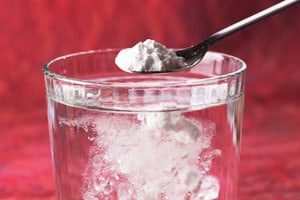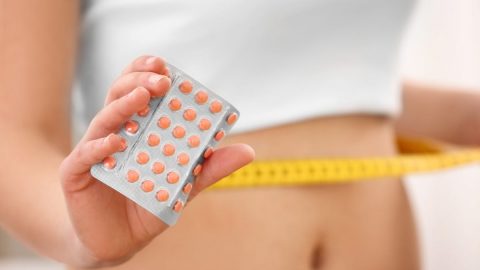Data continues to support the fact creatine is far more than a simple sports nutrition supplement per studies below, which I have updated several times. Yet another study supporting creatine as beneficial to both body and mind supplement finds the addition of creatine to cognitive-behavioural therapy (CBT) was superior to CBT alone. The highlights of this study entitled “Efficacy and safety profile of oral creatine monohydrate in add-on to cognitive-behavioural therapy in depression” (European Neuropsychopharmacology, Jan 2025, Pages 28-35) were as follows:
Highlights
- Creatine is an inexpensive compound that can augment antidepressants’ effects.
- Creatine appears better than placebo in increasing the antidepressant efficacy of CBT.
- Creatine is as safe and well-tolerated as placebo in depressed participants at 8 weeks.
- Longer and adequately sized trials of creatine in depression are warranted.
The full paper is linked above. Readers note, there’s a typo in that paper. For example, in the discussion section it says “…depression scores were significantly lower when CBT was augmented with 5 mg of creatine monohydrate…” which should be grams not milligrams!
2020 Updates:
Studies continue to support creatine as a supplement with a wide range of potential benefits to body and mind, some of which I posted below as well as additional links. A published study found an inverse association between dietary creatine and depression “… a significant negative relationship between dietary creatine and depression in a nationally representative adult cohort.”
That is, people that ingested foods known to be higher in creatine, was associated with lower rates of depression, with additional covariates such as “…income to poverty ratio, race/ethnicity, sex, age, education level, body mass index, healthcare access, smoking status, physical activity, and antidepressant/anxiolytic medication use” examined. Now, one must always be careful not to make cause and effect conclusions from such studies – as correlation does not equal causation – but taken together with a growing body of data on creatine (see below), the association is most interesting to be sure.
Also, an interesting study using creatine and the amino acid Taurine posted below. I was most interested and impressed by the biomarkers in stress-induced depression that were tested vs their only doing behavioral testing:
“…hippocampal catecholamine and serotonin levels increased significantly. Stress-related hormones (adrenocorticotropic and corticotropin-releasing hormones) and inflammatory factors (IL-1β, IL-6, and TNF-α) increased in the NS group but significantly decreased in the CRE/TAU-treated group”
As creatine has good data as having beneficial effects on mood, It’s unclear what additive effects the taurine had, but it makes sense taurine would be beneficial. Taurine is an amino acid finally getting the attention is deserves, but back to creatine;
Low creatine levels may be one aspect of why studies find vegans and vegetarians suffer higher rates of depression, so creatine, among various reasons, should be part of any vegan/vegetarian nutritional approach in my view.
2018 blog post:
Studies suggest creatine may be helpful with depression, and various mood disorders as well as being neuroprotective. I have covered that topic over the years here on BZ via article, vids, etc. It’s also an essential ingredient in my Bomb Proof Coffee/AlphaJoe recipe. Here’s a new review worth a read covering the possible mechanisms by how creatine may exert anti-depressant effects, clinical studies that exist, and so forth on this important topic. Another recent study examined the impact of creatine on bipolar depression and found benefits. Interesting to note, one study found creatine improved the effects of SSRI drugs in Women With Major Depressive Disorder using a Randomized, Double-Blind Placebo-Controlled Trial design.
Bottom line: Creatine does a body and brain good!
2020 updates:
Creatine monohydrate is actively being researched for its antidepressant effects, yet little is known about the link between dietary creatine and depression risk. This study examines the association between dietary creatine and depression in U.S. adults, using data from the 2005 to 2012 National Health and Nutrition Examination Survey (NHANES). Patient health questionnaire, dietary creatine intake and covariates were obtained on 22,692 NHANES participants ≥20 years of age.
Depression prevalence was calculated within quartiles of dietary creatine intake. Adjusted logistic regression models were formulated to determine the relationship between dietary creatine intake and depression risk. Additional covariates included income to poverty ratio, race/ethnicity, sex, age, education level, body mass index, healthcare access, smoking status, physical activity, and antidepressant/anxiolytic medication use. Models were further stratified by sex, age group, and antidepressant/anxiolytic medication use.
Depression prevalence was 10.23/100 persons (95% CI: 8.64-11.83) among NHANES participants in the lowest quartile of dietary creatine intake compared with 5.98/100 persons (95% CI: 4.97-6.98) among participants in the highest quartile (p < 0.001). An inverse association was measured between dietary creatine and depression (adjusted odds ratio (AOR) = 0.68, 95% CI: 0.52-0.88). Dietary creatine’s negative association with depression was strongest in females (AOR = 0.62, 95% CI: 0.40-0.98), participants aged 20-39 years (AOR = 0.52, 95% CI: 0.34-0.79) and participants not taking antidepressant/anxiolytic medication (AOR = 0.58, 95% CI: 0.43-0.77).
Study results indicate a significant negative relationship between dietary creatine and depression in a nationally representative adult cohort. Further research is warranted to investigate the role creatine plays in depression, particularly among women and across the lifespan.
Full paper HERE.
The possible beneficial effects of creatine for the management of depression
Progress in Neuro-psychopharmacology & Biological Psychiatry 2018 September 4
Depression, a highly prevalent neuropsychiatric disorder worldwide, causes a heavy burden for the society and is associated with suicide risk. The treatment of this disorder remains a challenge, since currently available antidepressants provide a slow and, often, incomplete response and cause several side effects that contribute to diminish the adhesion of patients to treatment. In this context, several nutraceuticals have been investigated regarding their possible beneficial effects for the management of this neuropsychiatric disorder.
Creatine stands out as a supplement frequently used for ergogenic purpose, but it also is a neuroprotective compound with potential to treat or mitigate a broad range of central nervous systems diseases, including depression. This review presents preclinical and clinical evidence that creatine may exhibit antidepressant properties. The focus is given on the possible molecular mechanisms underlying its effects based on the results obtained with different animal models of depression.
Finally, evidence obtained in animal models of depression addressing the possibility that creatine may produce rapid antidepressant effect, similar to ketamine, are also presented and discussed.
Source HERE
Cognitive effects of creatine monohydrate adjunctive therapy in patients with bipolar depression: Results from a randomized, double-blind, placebo-controlled trial
•Future studies on the cognitive-enhancing properties of creatine monohydrate in bipolar disorder should be undertaken.
Creatine metabolism and psychiatric disorders: Does creatine supplementation have therapeutic value?
Creatine and taurine mixtures alleviate depressive-like behaviour in Drosophila melanogaster and mice via regulating Akt and ERK/BDNF pathways
Scientific Reports 2020 July 9, 10 (1): 11370
We investigated the antidepressant effect of creatine (CRE) and taurine (TAU) mixtures on behavioural changes and biomarkers in stress-induced depression in Drosophila melanogaster and a mouse model. Following CRE/TAU mixture administration in the Drosophila model, depression-like state induced by vibration, locomotion, climbing activity, and survival rate were measured. The normal stress (NS) group demonstrated decreased movement than the control (CON) group; movements in the CRE/TAU-treated group (particularly 0.15/0.5%) returned to the CON levels.
Antidepressant effects of CRE/TAU mixtures were confirmed in a depressive mouse model induced by chronic mild stress. In behavioural assessments, movement and sucrose preference of the CRE/TAU group increased to a similar level as in the positive control group; hippocampal catecholamine and serotonin levels increased significantly. Stress-related hormones (adrenocorticotropic and corticotropin-releasing hormones) and inflammatory factors (IL-1β, IL-6, and TNF-α) increased in the NS group but significantly decreased in the CRE/TAU-treated group. Brain signalling protein expression ratio of phosphorylated protein kinase B (p-Akt)/Akt, phosphorylated extracellular signal-regulated kinase (p-ERK)/ERK, and brain-derived neurotrophic factor (BDNF) significantly increased in the CRE/TAU-treated group. These results indicate that CRE/TAU-induced antidepressant effects are associated with increased behavioural patterns and downregulation of stress hormones and cytokines, mediated through Akt and ERK/BDNF pathways in vertebrate models.
Source HERE
Will Brink is the owner of the Brinkzone Blog. Will has over 30 years experience as a respected author, columnist and consultant, to the supplement, fitness, bodybuilding, and weight loss industry and has been extensively published. Will graduated from Harvard University with a concentration in the natural sciences, and is a consultant to major supplement, dairy, and pharmaceutical companies.
His often ground breaking articles can be found in publications such as Lets Live, Muscle Media 2000, MuscleMag International, The Life Extension Magazine, Muscle n Fitness, Inside Karate, Exercise For Men Only, Body International, Power, Oxygen, Penthouse, Women’s World and The Townsend Letter For Doctors.
He’s also been published in peer reviewed journals.
Will is the author of the popular e-books, both accompanied by private members forum access , Bodybuilding Revealed & Fat Loss Revealed.
You can also buy Will’s other books on Amazon, Apple iBook, and Barnes and Noble.







Great information.Thanks.
Hello Sir. I tried to get to the paper to find out what dosing they were using, and the link that said Full paper HERE did not work (at least not on my old Windows XP machine).
I used a search engine and found it though.
I would have liked in your summary/highlights list if you had stated at the top that it was only a six week trial, and that the dosing was 6 g a day. I only take 1 g per day, and see great results from doing so, but I also know that people sometimes take upwards of 15g a day, but piss half of it likely. Anyway, so dosing is not ridiculous and so it is possibly relevant.
However, as far as it showing positive effects on brain power: I see that they made subjects perform five different cognitive tests, and found a statistical enhancement difference in only one of the five tests and nothing significant in the other four test. This reduces in my mind the likelihood that the original claim that it can help brain cognition is valid, at least, just going on this one test trial.
Thank you.
Late to the article but I’d like to respond to your statement:
“However, as far as it showing positive effects on brain power: I see that they made subjects perform five different cognitive tests, and found a statistical enhancement difference in only one of the five tests and nothing significant in the other four test. This reduces in my mind the likelihood that the original claim that it can help brain cognition is valid, at least, just going on this one test trial.”
Though not spoken about here in relation to this particular study/report there is a group of conditions known as Cerebral Creatine Deficiency Syndromes (CCDS). Within this group are 3 conditions: AGAT, GAMT, and CTD.
These conditions all present as low or no Creatine shown via brain MRS. They also present with cognitive deficits.
In both AGAT & GAMT, treatment with Creatine improved brain levels and improved cognition drastically for those treated early in brain development. It also showed to stop cognitive deterioration & increased cognitive ability in older patients whose brains were developed/developing.
Taking those conditions and the known science surrounding the CCDS into consideration, it can be testimony and validation to the discussion that Creatine can help brain cognition.
The CTD community awaits their ability to uptake Creatine & share in the improved cognitive outcomes that are witnessed/experienced in their CCDS peers.
I discuss GAMT etc in an article. When in doubt, search BrinkZone: https://brinkzone.com/creatine-saves-baby/
Thanks for such information. I am at 64 age in good health with no medicine. I do take creatine on and off when not traveling and use the gym a couple of times a week.
However, I noticed when I take creatine during day time, at evening if I drink alcohol such as beer and wine I tend to have bad headache at night.
When traveling I do drink but do not take any creatine. Therefore, I am just wondering when taking creatine one should not drink alcohol for some people.
I started taking creatine back in 2008 after reading a book Burn the fat feed the muscle and , according to Tom when you start you do a load phase where you chump 3-5 grams a day for a week then 2 grams a day is great for muscle repair and host of things. Now depression and soon who knows what. Will will know and then we will also. I was puzzled to learn in Will write up about letting it disolve first and bomb proof coffee does that for you